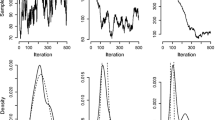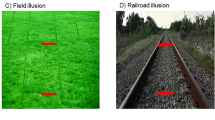Abstract
Perceptual disjunctivism is a controversial thesis about perception. One familiar characterization of the thesis maintains that there is no common epistemic kind that is present in both veridical and non-veridical cases of perception. For example, the good case, in which one sees a yellow lemon, and the bad case, in which one hallucinates a yellow lemon, share a specific first-person phenomenology, being indistinguishable from the first-person point of view; however, seeing a yellow lemon and hallucinating a yellow lemon do not, according to the disjunctivist, share a common epistemic kind. There are two types of disjunctivism: epistemological vs. metaphysical. John McDowell (1996, 2008, Philosophical Explorations, 13(3), 243–255, 2011, Philosophical Explorations, 16(3), 259–279, 2013) has articulated, refined, and defended one kind of disjunctivism. Tyler Burge (Philosophical Topics, 33(1), 1–78, 2005, Philosophical Explorations, 13(3), 43–80, 2011) has objected to many forms of disjunctivism, arguing that they are all inconsistent with the proximality principle (PP) in the vision sciences. PP requires an ability-general kind in common between relevantly similar perceptual states, such as seeing a yellow lemon and hallucinating a yellow lemon, which disjunctivism denies. Against the background of this debate some analytic epistemologists, such as Michael Martin (Philosophical Studies, 120, 37–89, 2004), Alan Millar (Philosophy and Phenomenological Research, 73(1), 176–198, 2007), Berit Brogaard (Philosophical Issues 21-The Epistemology of Perception, 21(1), 46–73, 2011), Duncan Pritchard (2012), and Heather Logue (Philosophy and Phenomenological Research, 86(1), 105–133, 2013) remain attracted to some version of disjunctivism. Brogaard and Pritchard each have gone on to articulate and defend a version. Pritchard’s (2012), for example, defends epistemological disjunctivism. Martin, Millar, and Logue, by contrast, have defended the idea that the disjunctivist is right about something, but perhaps not wholly correct about the nature of perception. In what follows, I articulate and defend the view that an interesting kind of disjunctivism is to be found through a reading of the Nyāya School of classical Indian philosophy. I articulate a version of perceptual disjunctivism informed by Nyāya perceptual theory that is not derivable from any single Nyāya philosopher. The view I offer is inspired by work on disjunctivism both in Anglo-analytic philosophy and in Nyāya scholarship, such as by Dasti and Phillips (Philosophy East & West, 60(4), 535–540, 2010), Ganeri (Philosophy East & West, 60(4), 541–550, 2010), Dasti (Philosophy East & West, 62(1), 1–15, 2012), Phillips (2012), Vaidya (Philosophy East and West, 63(4), 562–585, 2013), and Schiller (History of Philosophy Quarterly, 36(1), 1–18, 2019). Importantly, the causal account I offer is distinct from Grice’s (Proceedings of the Aristotelian Society, 121, 121–152, 1961) single-factor causal theory of perception by crucially involving a multi-factor causal theory of perception. My work on Nyāya perceptual theory derives primarily from Jaysankar Shaw’s (2016a, b, c) account of Nyāya on the sources of knowledge, which is distinct from Stephen Phillips’ well-known (2012) account of Nyāya epistemology. Shaw’s theory has been developed and refined through textual analysis and dialectical engagement with the twentieth century Nyāya Pundit Philosopher, Viśvabandhu Tarkatīrtha. Like other modern Nyāya scholars, such as B. K. Matilal (1992), A. Chakrabarti (Philosophy East and West, 50(1), 1–8, 2010), M. Chadha (2015), J. Ganeri (2011), and S. Phillips (Philosophy East and West, 51(1), 104–113, 2001, 2012), J. Shaw’s account shows how Nyāya epistemology is a living and continuing form of Indian philosophy. My goal here is twofold. On the one hand, I articulate multi-factor causal disjunctivism and show how it can be applied to the McDowell-Burge debate over the viability of disjunctivism and naïve realism. On the other hand, I aim to start a cross-cultural epistemological conversation with those that have contributed to the Anglo-analytic debate in anthologies, such as Haddock and Macpherson (2008), Byrne and Logue (2009), and introductions, such as Soteriou (2016). The hope is that a cross-cultural epistemological investigation into disjunctivism will lead to better epistemic theorizing about the nature of perception.
Similar content being viewed by others
Notes
See McDowell 2009: 80
Vaidya (2013)
It is important to note that there is a very large debate between A. Chakrabarti and S. Phillips over whether the Nyāya theory of perception ought to jettison the commitment it makes to both stages of perception. Chakrabarti (2000) argues that it should jettison the commitment. Phillips (2001) argues that it should not. Shaw (2016a) is in agreement with Phillips that Nyāya perceptual theory requires both qualificative and non-qualificative perception.
See Turri (2017)
For those that have read McDowell across his career, the attempt to respond to the skeptic or dislodge the skeptic is a constant theme stretching across his work. It is found in his (1996) Mind and World, and more recently, it is the central contention between McDowell and Wright in his (2008) ‘The Disjunctive Conception of Experience as Material for a Transcendental Argument.’
References
Brogaard, B. (2011). Primitive knowledge disjunctivism. Philosophical Issues 21-The Epistemology of Perception, 21(1), 45–73.
Burge, T. (2005). Disjunctivism and perceptual psychology. Philosophical Topics, 33(1), 1–78.
Burge, T. (2011). Disjunctivism again. Philosophical Explorations, 13(3), 43–80.
Byrne, A., & Logue, H. (2009). Disjunctivism: contemporary readings. Cambridge: MIT Press.
Campbell, J. (2010). Demonstrative reference, the relational view of experience, and the proximality principle. In R. Jeshion (Ed.), New essays on singular thought (pp. 193–213). Oxford: Oxford University Press.
Chadha, M. (2015). Perceptual experience and concepts in classical Indian philosophy. In E. N. Zalta (Ed.), The Stanford Encyclopedia of Philosophy (spring 2016 edition). http://plato.stanford.edu/archives/spr2016/entries/perception-india/.
Chakrabarti, A. (2000). Against immacualte perception: seven reasons for eliminating Nirvikalpa perception from Nyāya. Philosophy East and West, 50(1), 1–8.
Dasti, M. (2012). Parasitism and disjunctivism in Nyāya epistemology. Philosophy East & West, 62(1), 1–15.
Dasti, M. (2017). Vātsyāyana: cognition as a guide to action. In J. Ganeri (Ed.), Oxford Handbook of Indian Philosophy (pp. 209–231). Oxford: Oxford University Press.
Dasti, M., & Phillips, S. (2010). Pramāṇa are factive-a response to Jonardon Ganeri. Philosophy East & West, 60(4), 535–540.
Ganeri, J. (2010). A study of Indian epistemology: questions of method--a reply to Matthew Dasti and Stephen H. Phillips. Philosophy East & West, 60(4), 541–550.
Ganeri, J. (2011). The lost age of reason: philosophy in early modern India 1450–1700. Oxford: Oxford University Press.
Grice, P. (1961). The causal theory of perception. Proceedings of the Aristotelian Society, 121, 121–152.
Haddock, A., & Macpherson, F. (2008). Disjunctivism: perception, action, knowledge. Oxford: Oxford University Press.
Logue, H. (2013). Good news for disjunctivism about (one of) the bad cases. Philosophy and Phenomenological Research, 86(1), 105–133.
Martin, M. G. F. (2004). The limits of self-awareness. Philosophical Studies, 120, 37–89.
Matilal, B. K. (1992). Perception: an essay on classical Indian theories of knowledge. Oxford: Clarendon Press.
McDowell, J. (1996). Mind and world. Cambridge: Harvard University Press.
McDowell, J. (2008). The disjunctive conception of experience as material for a transcendental argument. In A. Haddock & F. Macpherson (Eds.), Disjunctivism: Perception, Action, Knowledge (pp. 376–389). Oxford: Oxford University Press.
McDowell, J. (2009). Criteria, defesability, and knowledge. In A. Byrne & H. Logue (Eds.), Disjunctivism: Contemporary Readings (pp. 75–91). Cambridge: MIT Press.
McDowell, J. (2011). Tyler Burge on disjunctivism. Philosophical Explorations, 13(3), 243–255.
McDowell, J. (2013). Tyler Burge on disjunctivism (II). Philosophical Explorations, 16(3), 259–279.
Millar, A. (2007). What the disjunctivist is right about. Philosophy and Phenomenological Research, 73(1), 176–198.
Phillips, S. (2001). There is nothing wrong with raw perception. Philosophy East and West, 51(1), 104–113.
Phillips, S. (2012). Epistemology in classical India: the knowledge sources of the Nyāya school. Routledge Publishing.
Pritchard, D. (2012). Epistemological disjunctivism. Oxford: Oxford University Press.
Schiller, H. T. (2019). The Nyāya argument for disjunctivism. History of Philosophy Quarterly, 36(1), 1–18.
Shaw, J. L. (1996). Cognition of cognition: Part II. Journal of Indian Philosophy, 24, 231–264.
Shaw, J. L. (2016a). Nyāya on the sources of knowledge. In J. L. Shaw (Ed.), The collected writings of Jaysankar Lal Shaw: Indian analytic and anglophone philosophy (pp. 73–120). London: Bloomsbury Publishing.
Shaw, J. L. (2016b). Knowledge, doubt, and belief: Some contemporary problems and their solutions from the Nyāya perspective. In J. L. Shaw (Ed.), The collected writings of Jaysankar Lal Shaw: Indian analytic and Anglophone philosophy (pp. 121–150). London: Bloomsbury Publishing.
Shaw, J. L. (2016c). The nature of Nyāya realism. In J. L. Shaw (Ed.), The collected writings of Jaysankar Lal Shaw: Indian analytic and Anglophone philosophy (pp. 66–72). London: Bloomsbury Publishing.
Soteriou, M. (2016). Disjunctivism. New problems in philosophy series. New York: Routledge Publishing.
Turri, J. (2017). Experimental, cross-cultural, and classical Indian episetmology. Journal of Indian Council of Philosophical Research, 34(3), 501–516.
Vaidya, A. (2013). Nyāya perceptual theory: disjunctivism or anti-individualism? Philosophy East and West, 63(4), 562–585.
Vaidya, A. (2015). The Nyāya misplacement theory of illusion and the metaphysical problem of perception. In P. Bilimoria & M. Hemmingsen (Eds.), Comparative philosophy and J. L. Shaw (pp. 123–139). Sophia Studies in Cross-cultural Philosophy of Traditions and Cultures. Dordrecht: Springer Publishing.
van Mazijk, C. (2020). Perception and reality in Kant, Husserl, and McDowell. Routledge Studies in Contemporary Philosophy. Oxforshire: Routledge Publishing.
Williams-Monier, M. (1992). A Sanskrit-English dictionary: Revised Edition. Oxford University Press.
Wright, C. (2008). Comment on John McDowell’s ‘The disjunctive conception of experience as material for a transcendental argument’. In A. Haddock & F. Macpherson (Eds.) Disjunctivism: Perception, Action, Knowledge (pp. 390–405). Oxford: Oxford University Press.
Author information
Authors and Affiliations
Corresponding author
Additional information
Publisher’s Note
Springer Nature remains neutral with regard to jurisdictional claims in published maps and institutional affiliations.
Rights and permissions
About this article
Cite this article
Vaidya, A.J. Multi-Factor Causal Disjunctivism: a Nyāya-Informed Account of Perceptual Disjunctivism. SOPHIA 60, 917–940 (2021). https://doi.org/10.1007/s11841-020-00786-5
Published:
Issue Date:
DOI: https://doi.org/10.1007/s11841-020-00786-5




